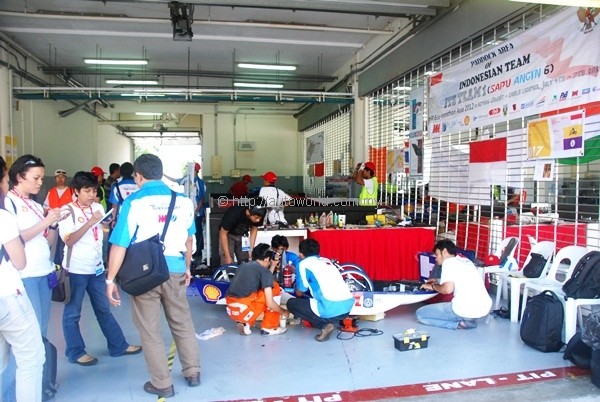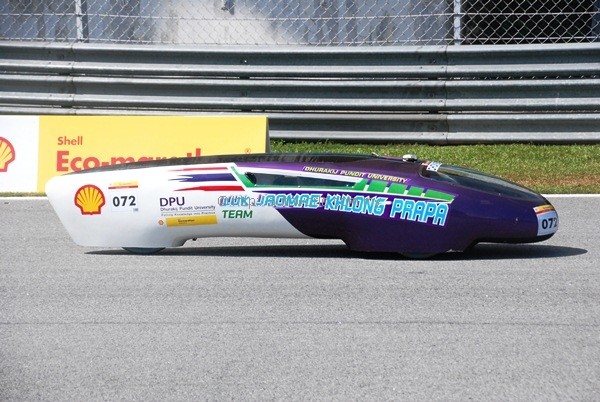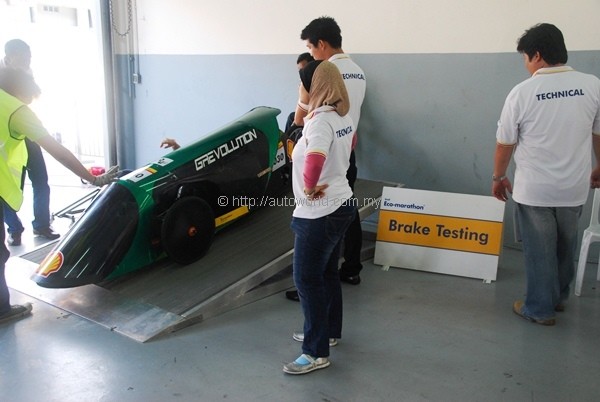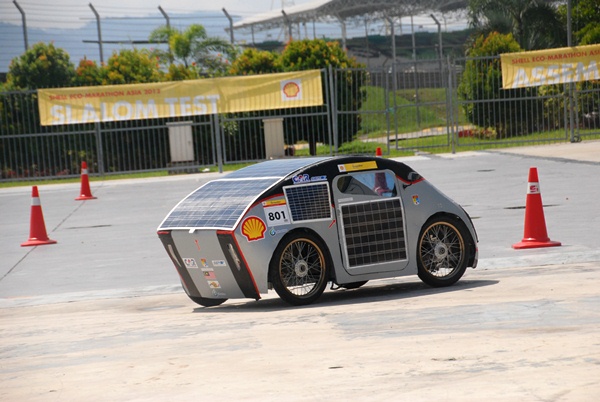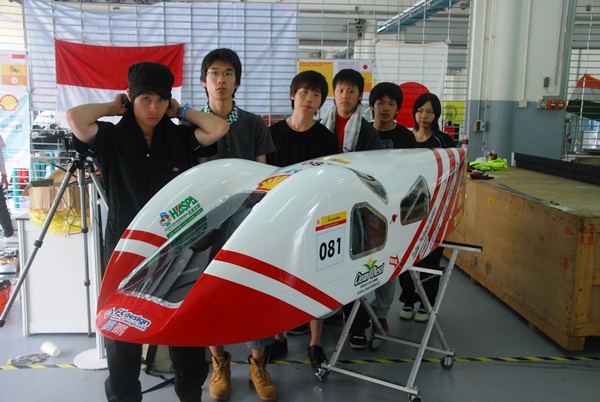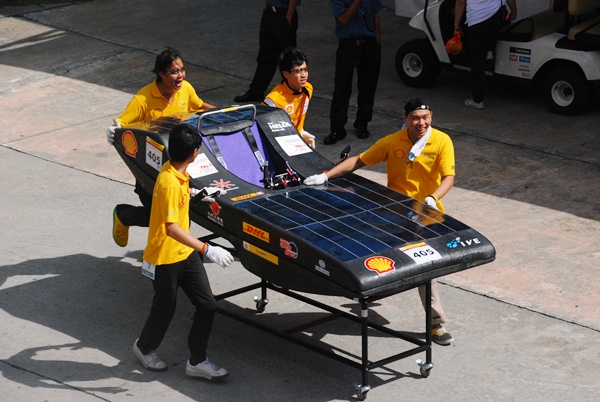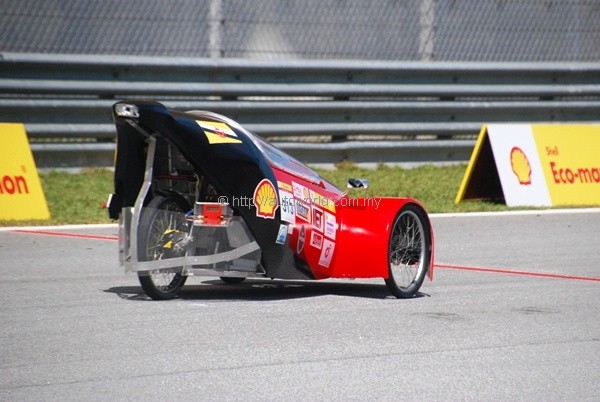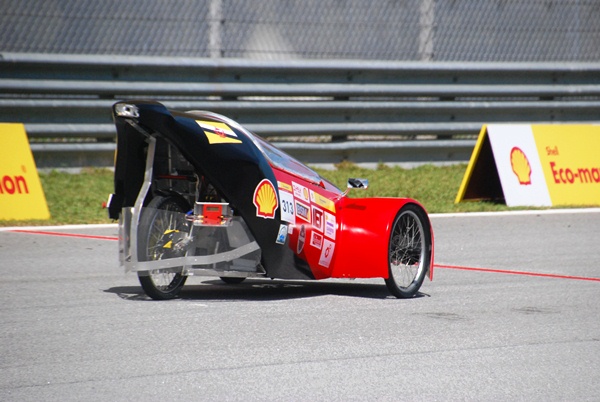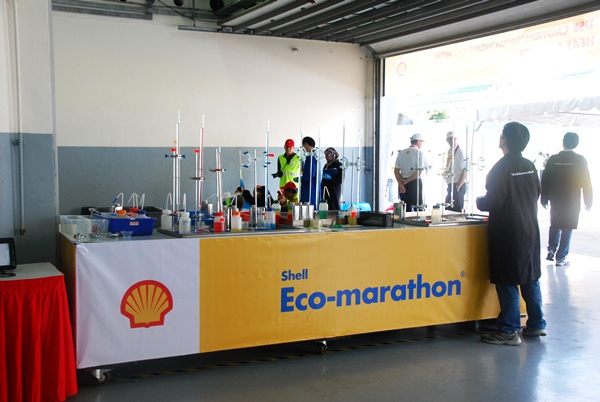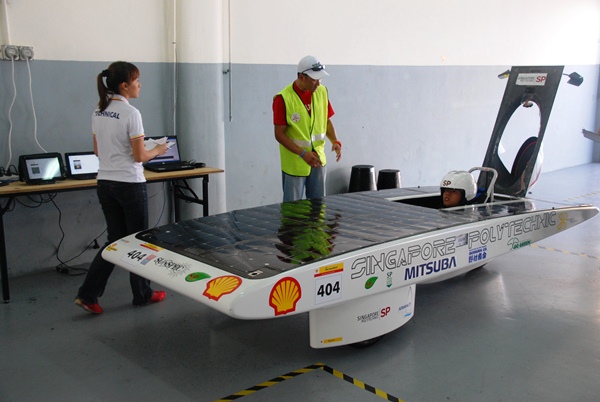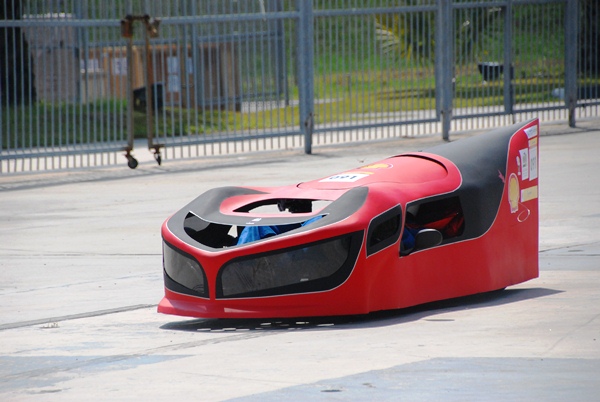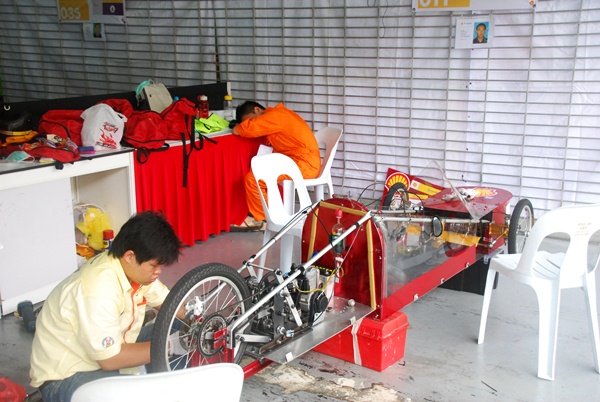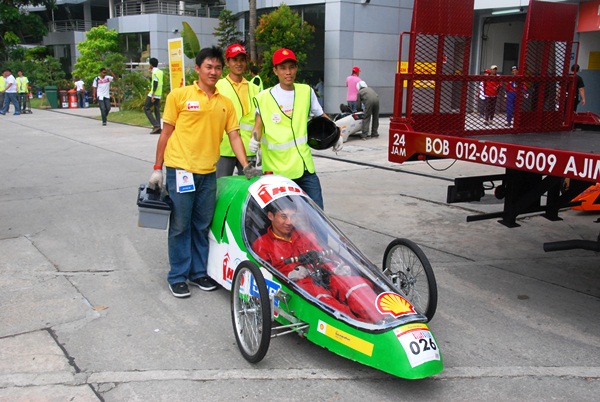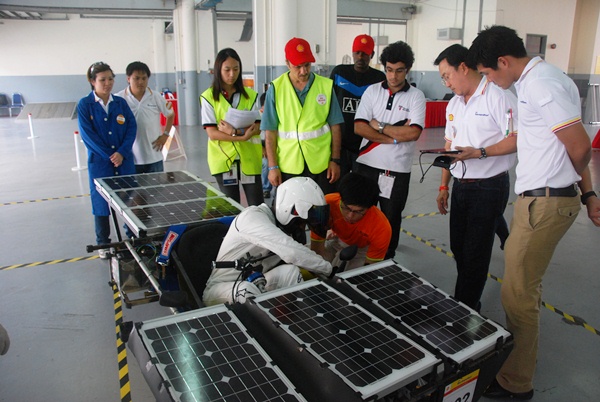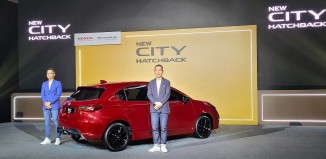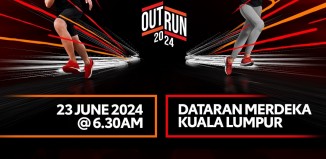Students raise fuel economy bar at Shell Eco-Marathon Asia 2012
With almost a year of high-speed high-octane motorsports-themed activity occupying its calendar, the Sepang International Circuit played host to something less frenetic over the recent weekend, the Shell Eco-marathon Asia 2012, where teams compete not to be the fastest to the finish line, but to consume the least amount of energy doing so.
The Shell Eco-marathon began in 1939 as a friendly wager between the company’s scientists, though it wasn’t until 1985 when the event was organized in the format as we know it today. Malaysia hosted the inaugural Shell Eco-marathon Asia in 2010, and will be hosting one more edition next year before the event moves to Manila, Philippines from 2014 to 2016.
Some 109 student teams hailing from 18 countries throughout the Asian continent were flagged off last Friday, 6 July 2012, putting their vehicles through various challenges over the period of two days. Institutes from Malaysia contributed 17 teams to the starting grid, with five of them bagging awards in their respective categories.
Commenting on the quality of this year’s entries, Colin Chin, Technical Director of Shell Eco-marathon Asia said, “Overall, the teams were much better prepared for this year’s competition with 109 of 119 vehicles passing technical inspection – a significant improvement from last year. It’s also been really encouraging to see student teams not just modifying their previous entries, but
challenging themselves to create brand new vehicles this year.”
Teams were separated into two main categories, Prototype and UrbanConcept. The Prototype category features the more futuristic designs, whereas in the UrbanConcept category, teams are required to make vehicles that more closely resemble the road-going vehicles of today, with the capability of driving in wet weather being among many requirements.
For propulsion, teams had the option of choosing between Internal Combustion Engines (ICE) and e-mobility energy sources. ICE fuels that featured in this year’s competition included diesel, gasoline, ethanol, fatty acid methyl ester (FAME), and Shell Gas to Liquids. The e-mobility option, meanwhile, are the electric motor driven alternatives, which used either solar panels, fuel cells, or batteries as their power sources.
Each team is given five laps around the SIC track in each run, and their performances are measured based on the amount of energy consumed. For ICE vehicles, this is indirectly computed by measuring the volumetric consumption of fuel over the five laps and converting it to a km/l figure. To enable a credible comparison between the various fuels, such as petrol and diesel, the competition’s technical team has developed formulas that adjust the figures based on the specific energy content of each fuel. It is a more straight forward process with the e-mobility vehicles, as the teams are measured based on the amount of electricity consumed.
Best run of the entire Shell Eco-marathon Asia 2012 was achieved by Team Luk Jao Mae Khlong Prapa of Dhurakij Pubdit University Thailand, which clocked 2,903 km/l on their ethanol E100-powered Prototype category vehicle, beating its own record of 2,213.4km set in last year’s event. In the UrbanConcept category, Team Cikal Cakrasvarna from Indonesia achieved the highest mileage of 183 km/l, running on gasoline.
Notable Malaysian entries included UMech of Universiti Malaya finishing second for the Hydrogen Prize among Prototype vehicles, UiTM Eco-Planet of Universiti Teknologi Mara in second place for the Hydrogen Prize in the UrbanConcept category, UKM1 of Universiti Kebangsaan Malaysia being sole participant of the Solar Prize UrbanConcept category, and SAE-UMP Chapter of Universiti Malaysia Pahang also sole participant of the Diesel Fuel Award UrbanConcept category.
More than just the need to be fuel efficient, participating vehicles are also required to pass safety inspections that include tests on their brakes, safety belts, and handling on a slalom course. There are also additional Off-Track Awards in the aspect of Safety, Technical Innovation, Design and Communications. In this year’s competition, new awards were also given for Eco-Design, Best Team Spirit and Perseverance in the Face of Adversity.
Winners of the Off-Track Awards are:
– Eco-Design: Team USM-EVT from Universiti Sains Malaysia
– Best Team Spirit: TIP Mileage from Technological Institute of the Philippines
– Perseverance in the Face of Adversity: PLM Alpha3 of Pusat Latihan Mekanik, Brunei Darussalam
– Design: SOLOMON Fuel Cell Vehicle team of the National Kaohsiung University of Applied Sciences, Chinese Taipei
– Safety: Diesel Car Racing Team of Nanyang Technological University, Singapore
– Communications: BIT QAT I of Beijing Technological University
– Technical Innovation: DLSU Eco-marathon Team – Proto of De La Salle University, Philippines
An overview of the Shell Eco-marathon 2012 winners:
Prototype Vehicles
Hydrogen Prize
1. NP Distanza-Proto, Ngee Ann Polytechnic, Singapore – 112.0 km/kWh
2. UMech, Universiti Malaya, Malaysia – 89.1 km/kWh
Battery Electric Prize
1. Katode, Donmuang Technical College, Thailand – 710.5 km/kWh
2. Nanyang eDrive, Nanyang Technological University, Singapore – 522.0 km/kWh
Solar Prize
1. SunSPEC, Singapore Polytechnic, Singapore – 109.9 km/kWh
2. SOPHIE, Hong Kong Institute of Vocational Education, Hong Kong – Valid run but energy consumption higher than production
Petrol Fuel Award
1. ATE.1, Kong Thabbok Upatham Changkol Kho So Tho Bo School, Thailand – 1,120.0 km/l
2. Virgin, Sakonnakhon Technical College, Thailand – 714.7 km/l
Diesel Fuel Award
1. ZEAL Eco-Power, Tongji University, China – 363.4 km/l
2. NTU Diesel Car Racing Team, Nanyang Technological University, Singapore – 350.6 km/l
Alternative Petrol Fuel Award
1. Luk Jao Mae Khlong Prapa, Dhurakij Pubdit University, Thailand – 2,903.0 km/l (ethanol)
2. Bio-Energy, Hanoi University of Science and Technology, Vietnam – 455.4 km/l (ethanol)
Alternative Diesel Fuel Award
1. Clean Diesel Team, Hyogo Prefectural Tajima Technical Institute, Japan – 1,186.6 km/l (FAME)
2. Gernas2, Qatar University, Qatar – 118.3 km/l (GTL)
UrbanConcept Vehicles
Hydrogen Prize
1. SOLOMON Fuel Cell Vehicle Team, National Kaohsiung University of Applied Sciences, Chinese Taipei – 63.0 km/kWh
2. UiTM Eco-Planet, Universiti Teknologi MARA (UiTM), Malaysia – 42.3 km/l
Battery Electric Prize
1. NP Distanza-UC, Ngee Ann Polytechnic, Singapore – 118.8 km/kWh
2. Cikal Cakrawala, Institut Teknologi Bandung, Indonesia – 74.9 km/kWh
Solar Prize
1. UKM1, Universiti Kebangsaan Malaysia, Malaysia – Valid run but energy consumption higher than production
Petrol Fuel Award
1. Cikal Cakrasvarna, Institut Teknologi Bandung, Indonesia – 196.3 km/l
2. Sadewa, Universitas Indonesia, Indonesia – 152.3 km/l
Diesel Fuel Award
1. SAE-UMP Chapter, Universiti Malaysia Pahang, Malaysia – 50.8 km/l
Alternative Diesel Fuel Award
1. ITS Team 2, Institut Teknologi Sepuluh Nopember, Indonesia – 166.9 km/l (FAME)
2. Cikal Diesel, Institut Teknologi Bandung, Indonesia – 149.1 km/l (FAME)




